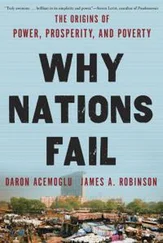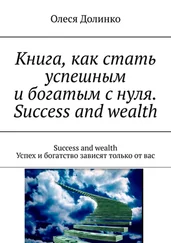Adam Smith - Wealth of Nations
Здесь есть возможность читать онлайн «Adam Smith - Wealth of Nations» — ознакомительный отрывок электронной книги совершенно бесплатно, а после прочтения отрывка купить полную версию. В некоторых случаях можно слушать аудио, скачать через торрент в формате fb2 и присутствует краткое содержание. Жанр: unrecognised, на английском языке. Описание произведения, (предисловие) а так же отзывы посетителей доступны на портале библиотеки ЛибКат.
- Название:Wealth of Nations
- Автор:
- Жанр:
- Год:неизвестен
- ISBN:нет данных
- Рейтинг книги:4 / 5. Голосов: 1
-
Избранное:Добавить в избранное
- Отзывы:
-
Ваша оценка:
- 80
- 1
- 2
- 3
- 4
- 5
Wealth of Nations: краткое содержание, описание и аннотация
Предлагаем к чтению аннотацию, описание, краткое содержание или предисловие (зависит от того, что написал сам автор книги «Wealth of Nations»). Если вы не нашли необходимую информацию о книге — напишите в комментариях, мы постараемся отыскать её.
Adam Smith's masterpiece, first published in 1776, is the foundation of modern economic thought and remains the single most important account of the rise of, and the principles behind, modern capitalism. Written in clear and incisive prose, The Wealth of Nations articulates the concepts indispensable to an understanding of contemporary society.
Wealth of Nations — читать онлайн ознакомительный отрывок
Ниже представлен текст книги, разбитый по страницам. Система сохранения места последней прочитанной страницы, позволяет с удобством читать онлайн бесплатно книгу «Wealth of Nations», без необходимости каждый раз заново искать на чём Вы остановились. Поставьте закладку, и сможете в любой момент перейти на страницу, на которой закончили чтение.
Интервал:
Закладка:
Though, in one sense of the word, silver always has been, and probably always will be, much cheaper than gold; yet in another sense gold may, perhaps, in the present state of the Spanish market, be said to be somewhat cheaper than silver. A commodity may be said to be dear or cheap, not only according to the absolute greatness or smallness of its usual price, but according as that price is more or less above the lowest for which it is possible to bring it to market for any considerable time together. This lowest price is that which barely replaces, with a moderate profit, the stock which must be employed in bringing the commodity thither. It is the price which affords nothing to the landlord, of which rent makes not any component part, but which resolves itself altogether into wages and profit. But, in the present state of the Spanish market, gold is certainly somewhat nearer to this lowest price than silver. The tax of the King of Spain upon gold is only one-twentieth part of the standard metal, or five per cent; whereas his tax upon silver amounts to one-tenth part of it, or to ten per cent. In these taxes too, it has already been observed, consists the whole rent of the greater part of the gold and silver mines of Spanish America; and that upon gold is still worse paid than that upon silver. The profits of the undertakers of gold mines too, as they more rarely make a fortune, must, in general, be still more moderate than those of the undertakers of silver mines. The price of Spanish gold, therefore, as it affords both less rent and less profit, must, in the Spanish market, be somewhat nearer to the lowest price for which it is possible to bring it thither than the price of Spanish silver. When all expenses are computed, the whole quantity of the one metal, it would seem, cannot, in the Spanish market, be disposed of so advantageously as the whole quantity of the other. The tax, indeed, of the King of Portugal upon the gold of the Brazils is the same with the ancient tax of the King of Spain upon the silver of Mexico and Peru; or one-fifth part of the standard metal. It may, therefore, be uncertain whether to the general market of Europe the whole mass of American gold comes at a price nearer to the lowest for which it is possible to bring it thither than the whole mass of American silver.
The price of diamonds and other precious stones may, perhaps, be still nearer to the lowest price at which it is possible to bring them to market than even the price of gold.
Though it is not very probable that any part of a tax, which is not only imposed upon one of the most proper subjects of taxation, a mere luxury and superfluity, but which affords so very important a revenue as the tax upon silver, will ever be given up as long as it is possible to pay it; yet the same impossibility of paying it, which in 1736 made it necessary to reduce it from one-fifth to one-tenth, may in time make it necessary to reduce it still further; in the same manner as it made it necessary to reduce the tax upon gold to one-twentieth. That the silver mines of Spanish America, like all other mines, become gradually more expensive in the working, on account of the greater depths at which it is necessary to carry on the works, and of the greater expense of drawing out the water and of supplying them with fresh air at those depths, is acknowledged by everybody who has inquired into the state of those mines.
These causes, which are equivalent to a growing scarcity of silver (for a commodity may be said to grow scarcer when it becomes more difficult and expensive to collect a certain quantity of it) must, in time, produce one or other of the three following events. The increase of the expense must either, first, be compensated altogether by a proportionable increase in the price of the metal; or, secondly, it must be compensated altogether by a proportionable diminution of the tax upon silver; or, thirdly, it must be compensated partly by the one, and partly by the other of those two expedients. This third event is very possible. As gold rose in its price in proportion to silver, notwithstanding a great diminution of the tax upon gold, so silver might rise in its price in proportion to labour and commodities, notwithstanding an equal diminution of the tax upon silver.
Such successive reductions of the tax, however, though they may not prevent altogether, must certainly retard, more or less, the rise of the value of silver in the European market. In consequence of such reductions many mines may be wrought which could not be wrought before, because they could not afford to pay the old tax; and the quantity of silver annually brought to market must always be somewhat greater, and, therefore, the value of any given quantity somewhat less, than it otherwise would have been. In consequence of the reduction in 1736, the value of silver in the European market, though it may not at this day be lower than before that reduction, is, probably, at least ten per cent lower than it would have been had the Court of Spain continued to exact the old tax.
That, notwithstanding this reduction, the value of silver has, during the course of the present century, begun to rise somewhat in the European market, the facts and arguments which have been alleged above dispose me to believe, or more properly to suspect and conjecture; for the best opinion which I can form upon this subject scarce, perhaps, deserves the name of belief. The rise, indeed, supposing there has been any, has hitherto been so very small that after all that has been said it may, perhaps, appear to many people uncertain, not only whether this event has actually taken place; but whether the contrary may not have taken place, or whether the value of the silver may not still continue to fall in the European market.
It must be observed, however, that whatever may be the supposed annual importation of gold and silver, there must be a certain period at which the annual consumption of those metals will be equal to that annual importation. Their consumption must increase as their mass increases, or rather in a much greater proportion. As their mass increases, their value diminishes. They are more used and less cared for, and their consumption consequently increases in a greater proportion than their mass. After a certain period, therefore, the annual consumption of those metals must, in this manner, become equal to their annual importation, provided that importation is not continually increasing; which, in the present times, is not supposed to be the case.
If, when the annual consumption has become equal to the annual importation, the annual importation should gradually diminish, the annual consumption may, for some time, exceed the annual importation. The mass of those metals may gradually and insensibly diminish, and their value gradually and insensibly rise, till the annual importation become again stationary, the annual consumption will gradually and insensibly accommodate itself to what that annual importation can maintain.
GROUNDS OF THE SUSPICION THAT THE VALUE OF SILVER STILL CONTINUES TO DECREASE
The increase of the wealth of Europe, and the popular notion that, as the quantity of the precious metals naturally increases with the increase of wealth so their value diminishes as their quantity increases, may, perhaps, dispose many people to believe that their value still continues to fall in the European market; and the still gradually increasing price of many parts of the rude produce of land may confirm them still further in this opinion.
That that increase in the quantity of the precious metals, which arises in any country from the increase of wealth, has no tendency to diminish their value, I have endeavoured to show already. Gold and silver naturally resort to a rich country, for the same reason that all sorts of luxuries and curiosities resort to it; not because they are cheaper there than in poorer countries, but because they are dearer, or because a better price is given for them. It is the superiority of price which attracts them, and as soon as that superiority ceases, they necessarily cease to go thither.
Читать дальшеИнтервал:
Закладка:
Похожие книги на «Wealth of Nations»
Представляем Вашему вниманию похожие книги на «Wealth of Nations» списком для выбора. Мы отобрали схожую по названию и смыслу литературу в надежде предоставить читателям больше вариантов отыскать новые, интересные, ещё непрочитанные произведения.
Обсуждение, отзывы о книге «Wealth of Nations» и просто собственные мнения читателей. Оставьте ваши комментарии, напишите, что Вы думаете о произведении, его смысле или главных героях. Укажите что конкретно понравилось, а что нет, и почему Вы так считаете.












